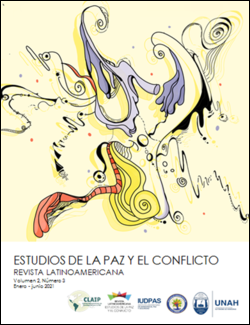Participatory resolu-mediation of conflicts in the educational ambit
DOI:
https://doi.org/10.5377/rlpc.v2i3.10339Keywords:
Bullying, conflict, constructivism, mediation, sociopraxisAbstract
The predominant models of conflict mediation in the school environment cannot address social problems such as bullying, among other considerations, because mediation requires that it be voluntary and also that the issues are not classified as criminal. In this article a reasoned criticism of the main models of school mediation as well as others is made, how the way in which needs are met generates relationships of cooperation and exploitation (the latter being possible precursors of conflicts) is explained, conflict is defined according to the socio-praxical perspective and the need to involve the set of networks and group realities, present at the school, in a process aimed at designing and implementing a plan for school coexistence with which to anticipate and/or solve conflicts is justified and argued.
Downloads
1335
HTLM (Español (España)) 364
XLM (Español (España)) 270
EPUB (Español (España)) 174
Downloads
Published
How to Cite
Issue
Section
License
The journal's contents are published under a Creative Commons Attribution 4.0 license (CC BY 4.0). This license allows third parties to share (copy and redistribute the material in any medium or format) and adapt (remix, transform and create from the material for any purpose, including commercial), as long as the authorship and first publication in this journal (Revista Latinoamericana Estudios de la Paz y el Conflicto, Universidad Nacional Autónoma de Honduras - Consejo Latinoamericano de Investigación para la Paz, DOI of the work) is acknowledged, a link to the license is provided and it is indicated if changes have been made to the original. The terms of the license are available online at http://creativecommons.org.




